Here’s the translation:
Darwin: The Master of Evolutionary Theory – The Impact and Reverberations of “On the Origin of Species” in Contemporary Issues
イントロダクション
チャールズ・ロバート・ダーウィンは、19世紀のイギリスの自然科学者であり、進化論の創始者として知られています。
ダーウィンの最も重要な思想は「自然選択」です。
ダーウィンは生物の多様性が、環境との相互作用によって進化してきたと考えました。
また、生物は世代を超えて遺伝情報を伝え、生存と繁殖に関する適応力を持つものが生き残り、適応力の低いものが絶滅していくという自然選択のプロセスが進化の原動力だと主張しました。
ダーウィンの最も有名な著書は『種の起源』です。
Introduction
Charles Robert Darwin was a 19th-century British natural scientist renowned as the founder of the theory of evolution.
Darwin’s most significant idea is “natural selection.”
He proposed that the diversity of life evolves through interactions with the environment.
Moreover, Darwin argued that organisms pass on genetic information across generations, with those best adapted for survival and reproduction thriving, while less adapted ones face extinction—a process he termed natural selection.
Darwin’s most famous work is “On the Origin of Species.”
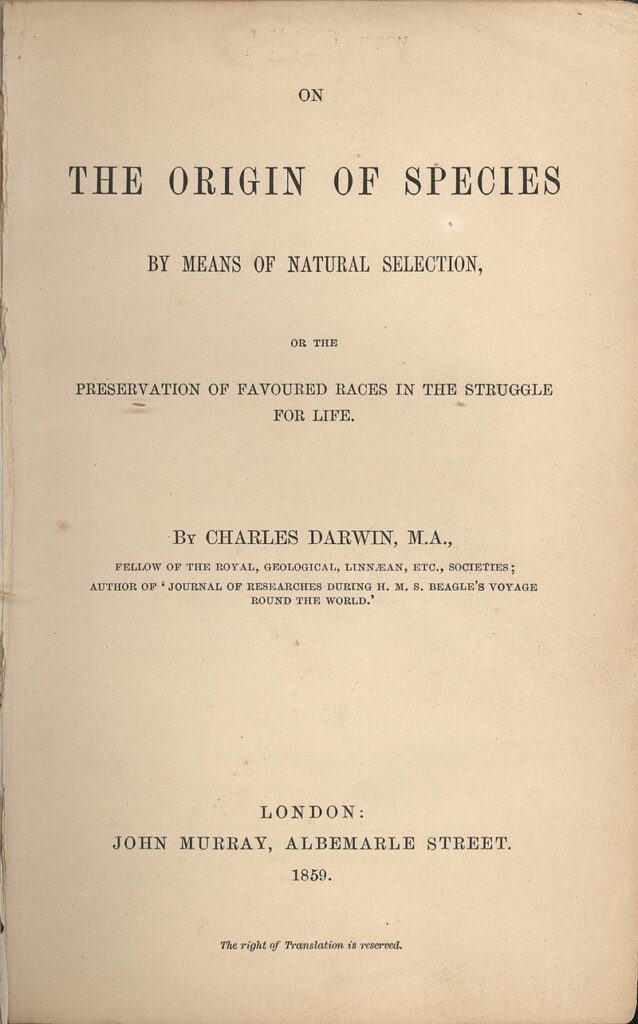
この本は1859年に出版され、彼の進化論の考えを詳細に説明しています。
また、『人間の由来』や『人及び動物の表情について』などの著書でも進化に関する考察を展開しました。
ダーウィンの『種の起源』は当初は議論を巻き起こしましたが、次第に広く受け入れられるようになり、進化論は生物学の中心的な理論として確立されました。
ダーウィンの考えは生物学だけでなく、様々な分野にも影響を与えました。
その影響の中で最も重要なものの一つは、宗教と科学の間の対立です。
進化論は一部の宗教的観点と矛盾する可能性があり、ダーウィンの理論は一部の宗教団体とその支持者から反発を受けました。
一方で、進化論は科学の発展に大きな影響を与えました。
遺伝学や生態学、行動学などの分野が進化論と関連して発展しました。
また、ダーウィンの考えは社会にも影響を与え、人間の行動や社会の進化を理解するためのフレームワークとして使われるようになりました。
Evolution and Darwin’s Impact
Published in 1859, this book elaborates extensively on his ideas of evolution.
Additionally, Darwin explored evolutionary concepts in works like “The Descent of Man” and “The Expression of the Emotions in Man and Animals.”
Initially controversial, Darwin’s “On the Origin of Species” gradually gained widespread acceptance, establishing evolution as a central theory in biology.
Darwin’s ideas not only influenced biology but also impacted various other fields.
Among the most significant impacts was the conflict between religion and science.
Evolutionary theory potentially contradicted certain religious perspectives, leading to resistance from some religious groups and their supporters.
Conversely, evolutionary theory profoundly influenced scientific progress.
Fields such as genetics, ecology, and behavioral studies developed in conjunction with evolutionary theory.
Moreover, Darwin’s ideas influenced society, providing a framework to understand human behavior and societal evolution.
ダーウィンの経歴
チャールズ・ロバート・ダーウィンは、1809年2月12日にイギリスのシュロップシャー州シュルーズベリーで生まれました。
医師の家庭に生まれましたが、医学に興味を持たず、16歳でエディンバラ大学に入学し、医学を学ぶための準備をしたものの、自然史に魅了され、医学の勉強をやめて理学部に移りました。
Charles Darwin’s Biography
Charles Robert Darwin was born on February 12, 1809, in Shrewsbury, Shropshire, England.
Born into a family of physicians, he initially prepared to study medicine but became fascinated with natural history at the age of 16. He enrolled at the University of Edinburgh but shifted his focus from medicine to the study of natural sciences.

University of Cambridge
その後、ケンブリッジ大学のクライスツ・カレッジに進学し、神学を学びつつ自然史の研究も行いました。
大学卒業後、1831年にダーウィンは、王立協会から派遣されたHMSビーグル号の世界周航調査の自然科学者として選ばれました。
5年間の航海で南アメリカ、オーストラリア、アフリカなどを訪れ、多くの生物学的観察や地質学的研究を行いました。
帰国後、彼は自然選択という概念を思いつき、長年にわたって研究と執筆を行いました。
1859年に彼の代表作『種の起源』が出版され、生物の進化と自然選択の理論を発表しました。
晩年のダーウィンは健康上の問題に悩まされつつも、進化論の研究を続けました。
Charles Darwin’s Later Career
Following this, Charles Darwin proceeded to Christ’s College, Cambridge University, where he studied theology while continuing his research in natural history.
After graduating from university, in 1831 Darwin was chosen as the naturalist aboard HMS Beagle for a scientific expedition around the world, sponsored by the Royal Society.
During the five-year voyage, he visited South America, Australia, Africa, among other places, conducting extensive biological observations and geological studies.
Upon his return, he developed the concept of natural selection, which he researched and wrote about extensively over the years.
In 1859, his seminal work “On the Origin of Species” was published, presenting his theories on evolution and natural selection.
In his later years, Darwin faced health challenges but continued his research into evolutionary theory.

The Copernicus Medal: Obverse (Left) – Reverse (Right)
1882年にはイギリス王立協会の最高の栄誉であるコプリ・メダルを受賞しました。
そして1882年4月19日、ケンブリッジシャーのダウンハウスで亡くなりました。
エディンバラ大学を中退
ダーウィンは1825年にエディンバラ大学に入学し、医学を学びましたが、その分野には興味を持てませんでした。
なぜなら解剖学や外科手術に耐えられなかった、と伝えられています。
代わりに自然科学に関心を持ち、特に博物学や地質学に熱中しました。
彼はエディンバラ自然科学協会やプライベート博物学クラブに参加し、多くの科学者や同好の士と交流しました。
また、海洋生物の標本を収集するために海岸沿いを散策したり、ロバート・グラント教授の助手として放散虫の研究に携わったりしました。
彼はこの時期に進化論の種子をまいたと言われています。
ダーウィンはエディンバラ大学で2年間過ごした後、1827年に退学しました。
そして、父親の勧めでケンブリッジ大学に転入し、神学を学ぶことになりました。
ケンブリッジ大学を卒業
ダーウィンは1828年にケンブリッジ大学クライスト・カレッジに入学し、神学を学びました。
しかし、彼は神学よりも自然科学に興味を持ち、植物学や昆虫学の研究に没頭しました。
彼はジョン・スティーブンス・ヘンズローという植物学者と親しくなり、彼から多くの影響を受けました。
ヘンズローはダーウィンに自然観察の方法や分類学の基礎を教え、彼を様々な科学的なサークルや旅行に誘いました。
ダーウィンはケンブリッジでの4年間を「私の人生で最も幸せな時期」と回想しています。
1831年にケンブリッジ大学を卒業し、その後、ヘンズローの推薦でビーグル号の世界一周航海に参加することになりました。
この航海はダーウィンの自然科学への情熱と進化論の発展に決定的な役割を果たしました。
ビーグル号航海
In 1882, he was awarded the prestigious Copley Medal by the Royal Society of London.
On April 19, 1882, he passed away at Down House in Cambridge.
Dropout from Edinburgh University
Darwin enrolled at the University of Edinburgh in 1825 to study medicine but found little interest in the field, reportedly due to his inability to tolerate anatomy and surgery.
Instead, he developed an interest in natural sciences, particularly botany and geology.
He became involved with the Edinburgh Natural History Society and the Plinian Society, engaging with numerous scientists and enthusiasts.
Darwin also collected marine specimens along the coast and assisted Professor Robert Grant in studying marine invertebrates, during which time he is said to have sown the seeds of his theory of evolution.
After spending two years at the University of Edinburgh, Darwin left in 1827 at the advice of his father and transferred to Cambridge University to study theology.
Graduation from Cambridge
Darwin entered Christ’s College, Cambridge in 1828 to study theology.
However, his interest in natural science surpassed theology, and he immersed himself in botany and entomology.
He became close to botanist John Stevens Henslow, who greatly influenced him.
Henslow taught Darwin methods of natural observation and the foundations of taxonomy, and invited him to various scientific circles and expeditions.
Darwin fondly recalled his four years at Cambridge as “the happiest time of my life.”
He graduated from Cambridge University in 1831 and subsequently, upon Henslow’s recommendation, joined the HMS Beagle for its global voyage.
The Voyage of the Beagle
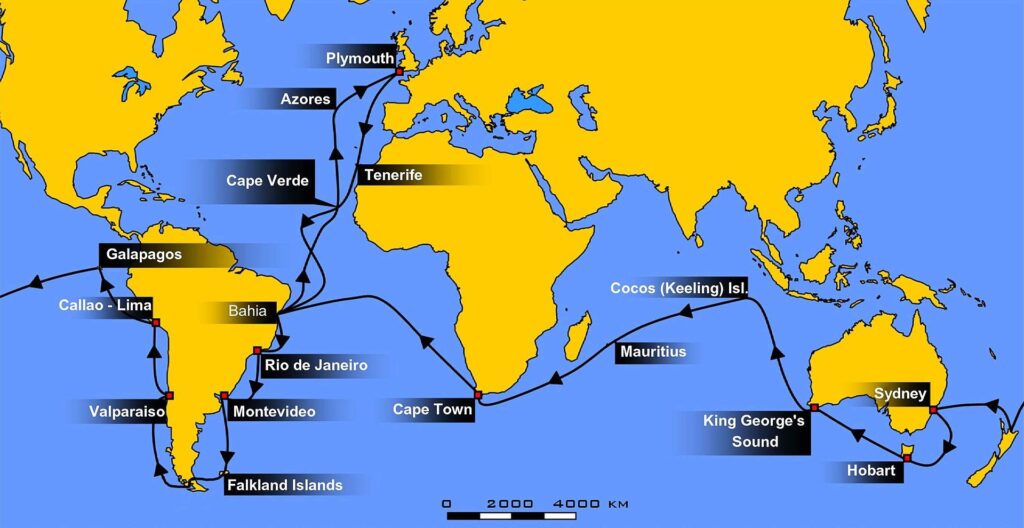
The Voyage of the HMS Beagle (1831 – 1836)
ダーウィンは、1831年から1836年にかけて、ビーグル号という船で世界一周の調査旅行に参加しました。
この旅行は、ダーウィンにとって人生を変える経験となりました。
彼は、様々な地域の動植物や地質を観察し、採集し、記録しました。
特に、南米のアンデス山脈やガラパゴス諸島で見た生物の多様性や適応に強い印象を受けました。
彼は、これらの観察から、生物は環境に応じて変化し、種が分化するという考えを思いつきました。
この考えは、後に彼が発表する進化論の基礎となりました。
ダーウィンのビーグル号航海時代は、科学史においても重要な出来事として認められています。
Darwin participated in a world circumnavigation survey aboard the HMS Beagle from 1831 to 1836. This journey profoundly altered his life. He observed, collected, and recorded various flora, fauna, and geological features across different regions. Particularly striking were the diversity and adaptations of organisms he encountered in the Andes Mountains of South America and the Galápagos Islands. From these observations, he conceived the idea that organisms adapt and diverge into new species in response to their environments. This concept formed the foundation of the evolutionary theory he later published. Darwin’s time aboard the Beagle is recognized as a pivotal event in the history of science.
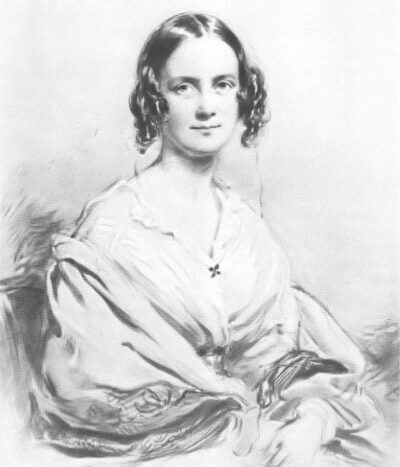
Emma Darwin (1840): Darwin married his cousin Emma Wedgwood in 1839.
自然選択説への到達
ダーウィンは航海から帰国後、自分の発見や考えを整理し始めました。
しかし、彼は自分の考えが当時の宗教や科学と衝突することを恐れて、公表することをためらいました。
彼は1844年に自分の考えをまとめた手紙を友人に送りましたが、それ以上は進みませんでした。
Arriving at Natural Selection
Upon returning from his voyage, Darwin began to organize his discoveries and thoughts. However, he hesitated to publish his ideas, fearing they would conflict with the religious and scientific beliefs of his time. In 1844, he sent a letter summarizing his thoughts to a friend, but did not proceed further.
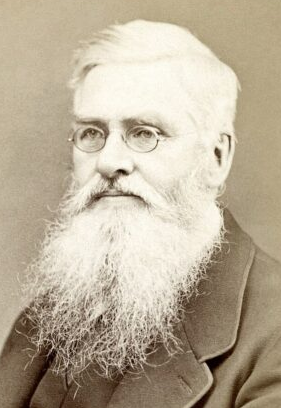
Alfred Russel Wallace
1858年になって、アルフレッド・ウォレスという博物学者がダーウィンと同じような考えを持っていることが判明しました。
ウォレスはダーウィンに自分の論文を送り、意見を求めました。
ダーウィンはウォレスの論文を読んで驚きましたが、彼の友人たちが両者の論文を同時に発表することを提案しました。
1858年7月1日、ダーウィンとウォレスの論文がロンドン地質学会で発表されました。
これが自然選択説の最初の公表でした。
自然選択説とは、生物は環境に適応するために変化し、有利な特徴を持つものが生き残りや繁殖のチャンスが高くなるという考えです。
この考えは、生物の進化や種分化を説明することができます。
ダーウィンは1859年に『種の起源』という本を出版し、自然選択説を詳しく説明しました。
この本は大きな反響を呼び、賛否両論が巻き起こりました。
しかし、次第に多くの科学者や一般人がダーウィンの考えを受け入れるようになりました。
今日では、自然選択説は生物学の基礎的な理論として広く認められています。
In 1858, it became known that Alfred Russel Wallace, a naturalist, shared similar ideas with Darwin.
Wallace sent his paper to Darwin, seeking his opinion. Darwin, upon reading Wallace’s paper, was astonished, and his friends proposed that both papers be presented simultaneously.
On July 1, 1858, Darwin and Wallace’s papers were jointly presented at the London Geological Society. This marked the first public presentation of the theory of natural selection.
Natural selection posits that organisms adapt to their environment, where those with advantageous traits have higher chances of survival and reproduction. This idea explains biological evolution and species diversification.
In 1859, Darwin published “On the Origin of Species,” detailing the theory of natural selection. The book sparked significant debate but gradually gained acceptance among scientists and the public.
Today, natural selection is widely recognized as a fundamental theory in biology.
ダーウィンの進化論
ダーウィンの進化論は、生物の多様性や適応に関する科学的な理論です。
ダーウィンは、自然選択というメカニズムによって、生物は環境に適した形質を獲得し、子孫に受け継ぐと考えました。
この過程によって、生物は長い時間の中で変化し、新しい種が誕生すると主張しています。
ダーウィンの進化論は、1859年に発表されましたが、その後の科学的な発見や技術の進歩によって、さらに裏付けられてきました。
現在では、進化論は生物学の基礎的な原理として広く受け入れられています。
自然選択説
ダーウィンの自然選択説は、生物学の歴史において画期的な出来事でした。
自然選択説とは、生物の種は、環境に適応するために変化し、その変化は子孫に受け継がれるという考え方です。
ダーウィンは、世界中を旅して多くの生物を観察し、その多様性と共通点に気づきました。
彼は、生物の種は互いに競争し、生き残りや繁殖に有利な特徴を持つものが選ばれると考えました。
このようにして、生物の種は進化するという仮説を立てました。
ダーウィンは、1859年に『種の起源』という本を出版し、自然選択説を世界に発表しました。
この本は、当時の科学界や社会に大きな衝撃を与えました。
自然選択説は、生物学の基礎となる理論として広く受け入れられるようになりましたが、宗教や倫理などとの関係で議論も起こりました。
ダーウィンの自然選択説は、今日でも生物学の研究や教育において重要な役割を果たしています。
獲得形質伝の支持とパンゲン説の提唱
ダーウィンは、進化論の中で獲得形質伝とパンゲン説に関連する考えを一時期持ちましたが、後にこれらのアイディアは彼自身によって放棄されました。
獲得形質伝とは、環境の影響によって個体が獲得した特徴や獲得した適応が、その後の世代に遺伝するという考え方です。
これはラマルク(ジャン=バティスト・ラマルク)などの前進進化論の代表的な考えでした。
ラマルクは、例えば長い首を持つキリンは世代を重ねるごとに首が長くなると主張し、このような獲得された特徴が子孫に遺伝されると考えました。
ダーウィンも初期の段階では、一部の獲得形質伝のアイディアを受け入れていましたが、後にこの考えを放棄しました。
彼は獲得された特徴が遺伝には関与せず、自然選択によって遺伝子レベルでの適応が進化の駆動力であるという考えに重点を置くようになりました。
パンゲン説は、ダーウィンが提唱した進化論において考えたアイディアで、生物の進化は微小な変化の蓄積によって起こるとする仮説です。
パンゲン説では、生物が微細な変化を遺伝子レベルで蓄積することによって、進化が進んでいくとされました。
しかし、ダーウィンは後に自然選択の重要性をより強調するようになり、微細な変化の蓄積だけでは進化を説明するのは難しいと考えました。
彼の理論は自然選択に基づくものとなり、生物の多様性や複雑さは自然選択によって形成されるという立場が確立されました。
『種の起源』 への反響
ダーウィンの種の起源は、今日では、科学界における最も重要な理論の一つですが、当時は科学的な議論だけでなく、宗教や哲学や社会にも大きな反響を呼びました。
なぜなら、自然選択の理論は、生物が神によって創造されたという従来の考え方に挑戦するものだったからです。
また、自然選択は、人間も他の動物と同じように進化したということを意味しており、これは、人間が特別な存在であるという人類中心主義や人種差別的な思想にも衝撃を与えました。
一方で、自然選択は、社会進化論や優生学といった思想にも影響を与えています。
これらの思想は、社会や人間も自然選択の法則に従っていると考えて、弱者や劣等な人種を排除することを正当化しようとする捉え方です。
総じて、『種の起源』は当時の科学界や社会に大きな波紋を広げた重要な書籍であり、その後の科学と文化に対する影響は計り知れないものとなりました。
人間の由来と性選択
ダーウィンは、人間の進化において性選択が重要な役割を果たしたと考えました。
性選択とは、生殖上の利益を得るために、同じ種の異性に魅力的に見えるように進化した特徴のことです。
例えば、孔雀のオスは、メスを引き付けるために美しい羽を持っています。
ダーウィンは、人間の身体的・精神的な特徴も、性選択によって形成されたと主張しました。
彼は、人間の種族間の違いや、男女の違いも、性選択の結果であると考えました。
ダーウィンは、自然選択と性選択が相互に作用して、人間の進化を促したと考えました。
彼は、この理論を1871年に出版した『人間の由来と性選択』という著書で詳しく説明しました。
Darwin’s Theory of Evolution
Darwin’s theory of evolution is a scientific explanation regarding the diversity and adaptation of organisms.
He proposed that through a mechanism called natural selection, organisms acquire traits that are favorable in their environment and pass them on to their offspring.
This process leads to changes in organisms over long periods, eventually giving rise to new species.
Darwin’s theory of evolution was published in 1859 and has since been further supported by subsequent scientific discoveries and technological advancements.
Today, evolution is widely accepted as a fundamental principle in biology.
Theory of Natural Selection
Darwin’s theory of natural selection was a groundbreaking event in the history of biology.
Natural selection suggests that species adapt to their environment, and these adaptations are inherited by their descendants.
Traveling worldwide, Darwin observed diverse organisms and recognized patterns among them.
He believed organisms compete with each other, and those with advantageous traits are more likely to survive and reproduce.
Thus, he hypothesized that species evolve through this process.
In 1859, Darwin published “On the Origin of Species,” introducing the theory of natural selection to the world.
This book had a profound impact on the scientific community and society at large.
While widely accepted as a foundational theory in biology, it sparked debates, especially concerning its implications for religion and ethics.
Darwin’s theory of natural selection continues to play a crucial role in biological research and education today.
Support for Lamarckism and the Proposal of Pangenesis
At one point, Darwin entertained ideas related to Lamarckism and pangenesis within his theory of evolution, but later abandoned these concepts himself.
Lamarckism proposes that traits acquired through environmental influences can be inherited by subsequent generations.
This was a prominent idea in early evolutionary thought, championed by Jean-Baptiste Lamarck.
Lamarck argued, for instance, that giraffes developed longer necks over generations of stretching to reach leaves, with these acquired traits passed down.
Initially, Darwin accepted some aspects of Lamarckism but later rejected them, focusing instead on natural selection as the primary driver of evolution at the genetic level.
Pangenesis, a hypothesis Darwin considered, suggested that small changes accumulated at the genetic level drive evolution by natural selection.
However, he later emphasized the importance of natural selection alone, arguing that cumulative small changes alone could not fully explain evolution.
His theory highlighted that natural selection shapes the diversity and complexity of organisms.
Reception of “On the Origin of Species”
Darwin’s “On the Origin of Species” is today considered one of the most important theories in science, but at the time, it generated significant scientific, religious, philosophical, and social debates.
This was because the theory of natural selection challenged the conventional view that life forms were created by a divine force.
Additionally, natural selection suggested that humans, like other animals, evolved, challenging anthropocentrism and racial discrimination.
Conversely, social theories like social Darwinism and eugenics emerged, justifying the exclusion of weaker or inferior races based on the principles of natural selection.
Overall, “On the Origin of Species” was a pivotal book that stirred significant controversy in both the scientific community and society.
Human Origins and Sexual Selection
Darwin argued that sexual selection played a crucial role in human evolution.
Sexual selection refers to the evolution of traits that confer reproductive advantages by being attractive to members of the opposite sex within the same species.
For instance, male peacocks have evolved beautiful tails to attract females.
Darwin proposed that both physical and psychological traits in humans were shaped by sexual selection.
He believed that racial differences and gender distinctions in humans were also outcomes of sexual selection.
Darwin suggested that natural selection and sexual selection interacted to drive human evolution.
He elaborated on this theory in his 1871 book, “The Descent of Man, and Selection in Relation to Sex.”
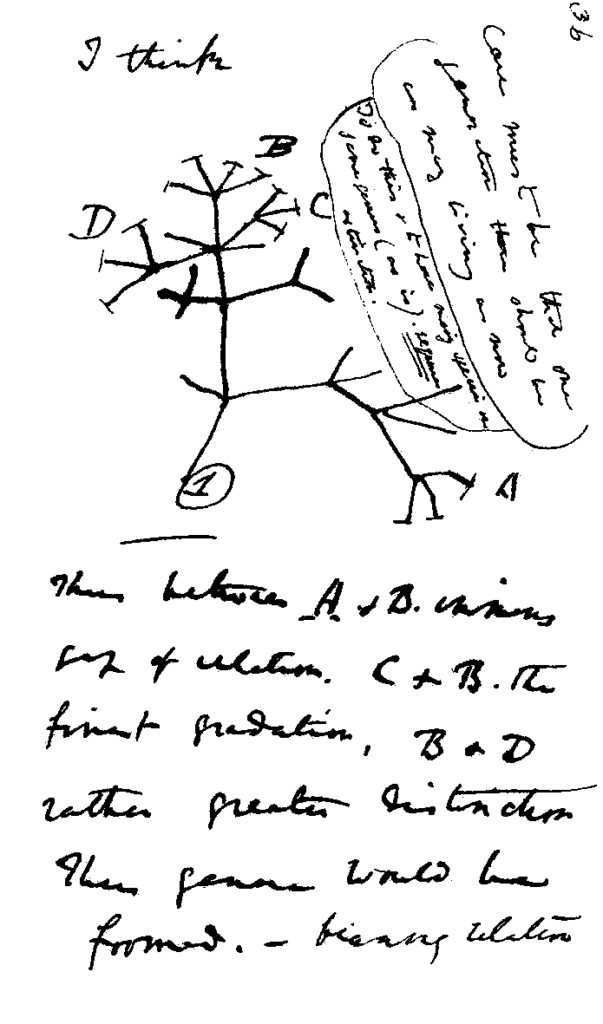
Sketch of Reflections (1837): Known as the Tree of Life. This notebook went missing in 2001 but was rediscovered in 2022.
ダーウィンのその他の研究
ダーウィンは、進化論の他にも様々な研究を行い、その成果は多岐にわたります。
以下にダーウィンの主な研究領域をいくつか挙げます。
・地質学:ビーグル号の航海中に多くの地質学的観察を行い、地質学の知識を蓄積しました。
彼は地質学の重要性に気付き、地質学的な現象が生物の進化にどのような影響を及ぼすかを考察しました。
また、地質学的な遺跡や化石を調査することで、地球の歴史や生物の変遷についての洞察を深めました。
・植物学:ダーウィンは植物学にも興味を持ち、植物の多様性や形態の変化に関する研究を行いました。
特に植物の交配や種子の伝播に関する実験を行い、植物の遺伝的な特性や進化のメカニズムを理解することに努めました。
・動物行動学:ダーウィンは動物の行動にも関心を寄せ、動物の社会性やコミュニケーションについて研究しました。
特に鳥の行動や巣作りについての観察を行い、性選択や繁殖行動についての理論を展開しました。
・植物の受粉:ダーウィンは植物の受粉に関する研究も行いました。
特に花の構造や花粉の運搬に関する観察を通じて、植物の受粉における進化の重要性を示しました。
Other Research by Darwin
Beyond evolutionary theory, Darwin conducted a wide range of studies that yielded diverse outcomes. Here are some key areas of his research:
- Geology: During the voyage of the Beagle, Darwin made numerous geological observations, accumulating knowledge in geology. He recognized the importance of geological phenomena and contemplated their impact on the evolution of organisms. His investigations into geological remains and fossils deepened insights into Earth’s history and biological transitions.
- Botany: Darwin also explored botany, studying the diversity and morphological changes of plants. He conducted experiments, particularly on plant hybridization and seed dispersal, striving to understand the genetic traits of plants and mechanisms of evolution.
- Animal Behavior: Darwin had a keen interest in animal behavior, studying sociality and communication among animals. His observations, especially on bird behavior and nest-building, contributed to theories on sexual selection and reproductive behavior.
- Plant Pollination: Darwin conducted research on plant pollination, emphasizing the evolutionary significance of floral structure and pollen transport. Through his observations, he highlighted the importance of pollination in plant evolution.
These diverse studies underscore Darwin’s broad scientific curiosity and the interdisciplinary nature of his contributions to biology.
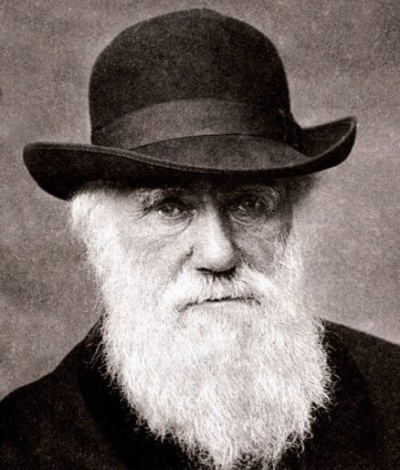
1880 Portrait: Continuing Research into His Later Years, Influencing a Wide Range of Natural Sciences
ダーウィンの社会思想
ダーウィンの社会思想は、社会進化論として知られています。
社会進化論は、社会が進化していく過程を階梯型で捉え、より複雑な社会がより優れた社会であると考えます。
ダーウィンは、社会進化論を、社会の改革や発展に役立てようとしました。
しかし、社会進化論は、人種差別や優生思想の根拠として使われることもありました。
ダーウィンは、人種差別や優生思想を否定していましたが、彼の理論は、これらの思想の正当化に使われました。
ダーウィンの社会思想は、今日でもなお、議論の対象となっています。
しかし、彼の理論は、社会を理解する上で重要な視点を提供しています。
優生学と批判
優生学は、遺伝的に優れた特性を持つ個体が増やされるように社会的な介入を行い、遺伝的な特性を改善しようとする考え方や運動を指します。
優生学は19世紀末から20世紀初頭にかけて広まり、一部の社会学者、政治家、科学者によって支持されました。
ダーウィンの進化論が登場した当初、優生学の考え方も一部の科学者や社会学者によって進化論と結び付けられ、遺伝的に優れた人間を増やすことで人間社会を進化させようとするアイディアとして提唱されました。
しかし、優生学には多くの批判があります。
まず、倫理的な問題です。遺伝的に優れた人間を増やすことを試みることは、他の人々の権利や尊厳を軽視する可能性があります。
人間の多様性を尊重し、差別や排除を防ぐために、優生学のアプローチは問題視されることがあります。
次に、社会的な偏見と差別です。
優生学は一部の社会的な偏見や差別を助長する可能性があります。
特定の人種、階級、障害を持つ個体に対して、優生学に基づく社会的な選択や制限が行われることがあるため、人権と平等に対する懸念が生じます。
また、遺伝的な知識の限界の視点からも批判的な意見があります。
優生学の考え方は、当時の遺伝学の知識の限界や偏見によって支えられていた面があります。
遺伝学の発展により、遺伝的な特性が複雑で多様であることが明らかになりました。
したがって、単純な遺伝的な選別や改善が望ましい結果をもたらすとは限らないことが分かっています。
これらの批判と懸念を背景に、優生学は現代社会で広く支持されることはなくなりました。
現在では、倫理的な問題や社会的な偏見を考慮しつつ、個々の人間の尊厳と権利を尊重する人間中心のアプローチが主流となっています。
社会ダーウィニズム
社会ダーウィニズムは、ダーウィンの進化論を社会や経済の領域に応用しようとする考え方です。
社会ダーウィニズムは、個人や社会集団が自然選択の法則に従って競争し、適応力の高い者が生き残り、弱者は淘汰されるという進化論の考え方を社会的な現象や経済的な問題に適用しようとします。
社会ダーウィニズムは19世紀末から20世紀初頭にかけて、一部の社会学者や経済学者によって支持されましたが、一方で多くの批判も受けました。
主な特徴や影響を以下に示します:
・競争と社会の進化:社会ダーウィニズムは、社会における競争と競争による淘汰を肯定し、これによって社会全体が進化していくという考え方を提唱しました。
競争を奨励することで、適応力の高い個人や社会集団が生き残り、社会全体が進歩するという観点から、社会の発展における競争の重要性を強調しました。
・進化と優越性の主張:一部の社会ダーウィニストは、自らの集団や国が他の集団や国よりも進化的に優れていると主張することがありました。
彼らは、自らの文化や社会の優越性を進化論に基づいて主張し、差別や帝国主義を正当化しようとしました。
・批判:社会ダーウィニズムは、その適用範囲や倫理的な問題などに対して多くの批判を受けました。
特に、遺伝的な優越性を主張することが、人種差別や社会的不平等を正当化する要因となることが懸念されました。
Darwin’s Social Thought
Darwin’s social thought is known as social evolutionism.
Social evolutionism perceives societal progress as hierarchical, where more complex societies are considered superior.
Darwin aimed to apply social evolutionism to reform and advance societies.
However, social evolutionism has been used to justify racial discrimination and eugenics, despite Darwin’s personal disapproval of these ideas.
Even today, Darwin’s social thought remains a subject of debate, yet it provides crucial insights into understanding society.
Eugenics and Criticism
Eugenics refers to efforts in social intervention to increase individuals with genetically superior traits, aiming to improve genetic characteristics.
Eugenics gained traction from the late 19th to early 20th century, supported by some sociologists, politicians, and scientists.
Initially linked with Darwin’s theory of evolution, eugenics proposed enhancing human societies by increasing individuals with superior genetics.
However, eugenics faced significant criticism. Firstly, ethical concerns arose as attempting to increase genetically superior individuals might disregard others’ rights and dignity.
Secondly, there were social biases and discrimination concerns. Eugenics could promote social biases and discriminatory practices against certain races, classes, or individuals with disabilities, raising concerns about human rights and equality.
Additionally, from a perspective of limited genetic knowledge, eugenics was supported by biased views and the constraints of genetic science of the time.
As genetics advanced, it became evident that genetic traits are complex and diverse, challenging the notion that simple genetic selection or improvement would yield desirable outcomes.
Due to these criticisms and concerns, eugenics lost widespread support in modern society. Today, a human-centered approach that respects the dignity and rights of individuals is predominant.
Social Darwinism
Social Darwinism applies Darwin’s theory of evolution to social and economic issues.
From the late 19th to early 20th century, some sociologists and economists supported Social Darwinism, while it also faced considerable criticism.
Key features and impacts include:
- Competition and social evolution: Social Darwinism affirms competition and natural selection in society, suggesting that competition fosters adaptive individuals and social groups, thereby advancing society as a whole.
- Claims of evolution and superiority: Some proponents of Social Darwinism claimed evolutionary superiority of their own group or nation over others. They used evolutionary theories to assert cultural or social superiority, sometimes justifying discrimination or imperialism.
- Criticism: Social Darwinism encountered criticism regarding its scope and ethical implications. Particularly, advocating genetic superiority could justify racial discrimination and social inequalities.

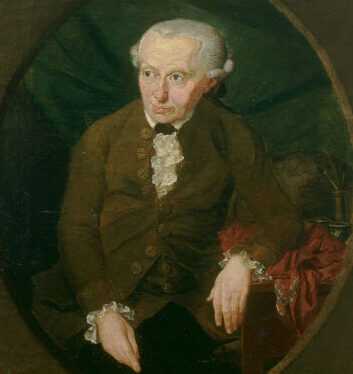

コメント
[…] ダーウィン:「進化論の巨匠」『種の起源』の衝撃と反響 現代的課題マルクス「革命の巨星」理想と闘争の生涯 『共産党宣言』『資本論』グリーン 19世紀の英国理想主義のリーダー その哲学と今日の影響グリーン 19世紀の英国理想主義のリーダー その哲学と今日の影響 […]